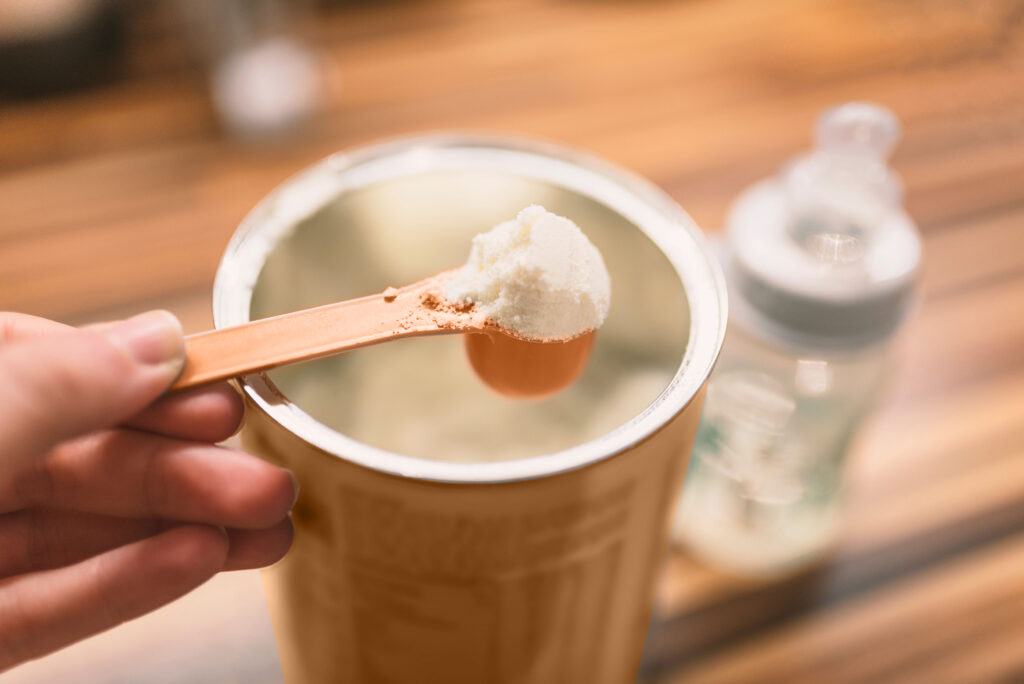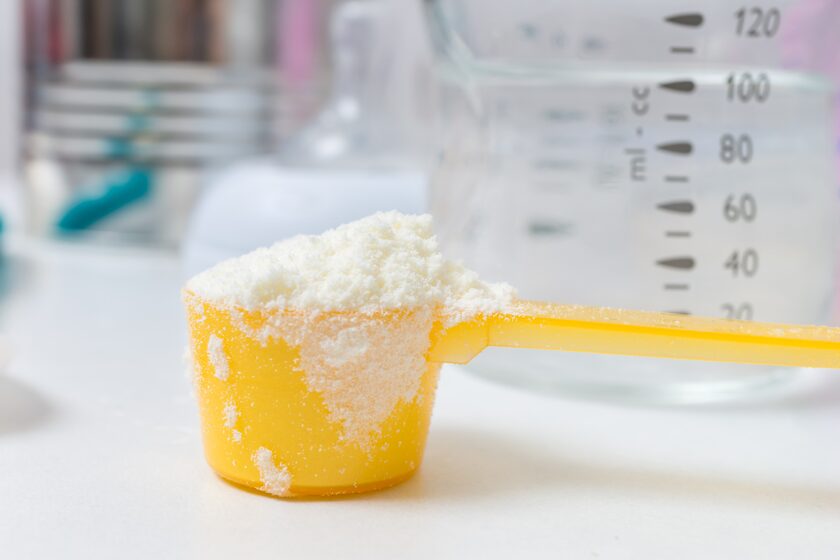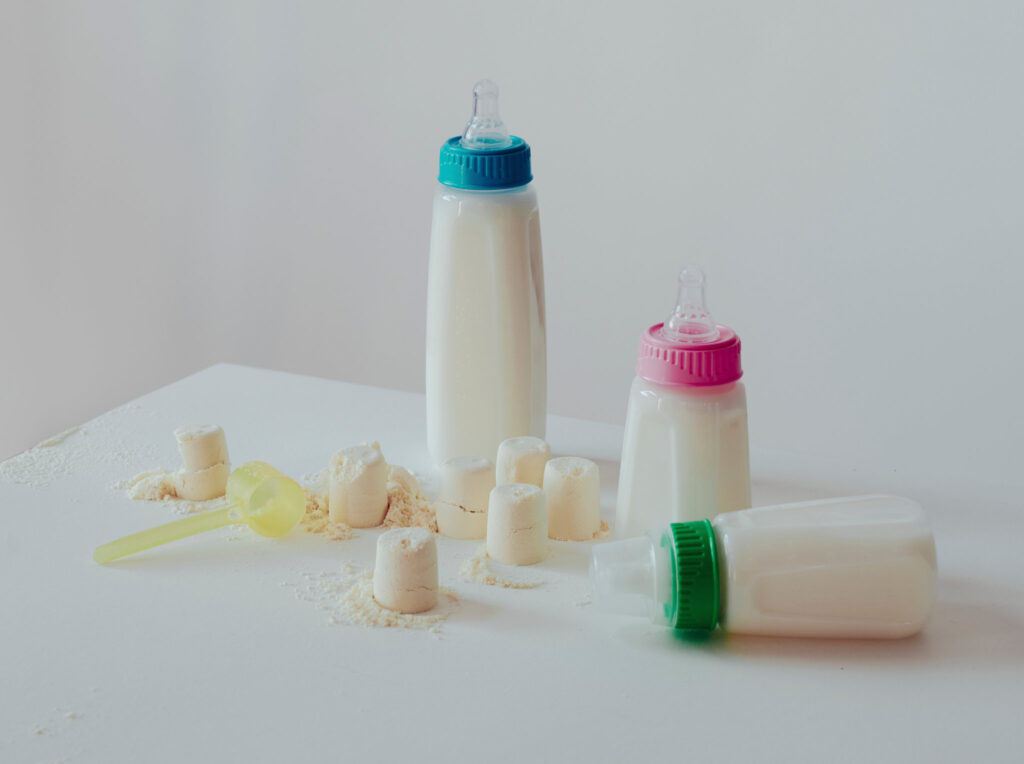3 Things To Know About Types Of Formula Milk And Tips For Choosing

Newborns are simply adorable and super cute. They require a lot of energy to wander around the house and act cute. This is provided best by milk produced by lactating mothers. However, it might not be enough for the growing babies due to many reasons.
The mother might be not lactating enough to meet the needs of the child, or could be sick or not available all the time around. Baby formula comes to the rescue during such conditions and helps the babies in their overall development.
Baby formula is filled with nutrition and is very beneficial for growing babies. These are carefully tailored to replicate all the essentials provided by breastfeeding and have added vitamins and other essentials to enhance the babies’ growth. These formulae can now be bought off from the internet, from the comfort of your homes.
All you have to do is to select a formula that suits you and your baby the best and place your order. Many websites and online stores are now available to make the process much easier. For more information, you can visit organicsbestshop.com.

Even though breastfeeding is the best way to provide all the important nutrients to newborns, formula milk is also good enough. However, one needs to be excessively careful and cautious whilst picking out the type of formula. They are available in a wide range to cater to the needs of different kinds.
The list given below would help you pick the best formula that would suit your baby the best, as it contains 3 things to know about the types of formula milk. Additionally, a few tips are also provided at the end which would help you choose.
1. Types of baby formula
The market of baby formula milk is very vast and the same can become quite confusing for everyone. These are available in many different types and can be classified based on their key ingredient. These are:
-
Milk-based formula

As the name suggests, these have milk as their basic ingredient. They usually have cow’s milk in them as it provides the major nutrients to the consumers. Moreover, they have added fats and proteins in the right proportions to meet the requirements of the child. Sometimes, they also have buffalo milk, however, such formulae are harder to digest by the infants.
-
Lactose-free formula
Not all kids are the same, some are lactose intolerant. Milk and other milk-based products, including the formulae, can be harmful to them. To overcome such a situation, many lactose-free formulae are available in the market. Most of the time, lactose is replaced with corn syrup, which replenishes the protein content and other essentialities are later additionally added.
-
Soy-based formula
You might be aware of the variety of plant-based milk, milk products, and proteins that are now available for adults. Following a similar trail, the formula companies are now adopting various plant-based proteins to replace regular animal milk. There are many soy, almond, and cashew-based milk and baby formulas available in the market, and can be highly useful in the cases of lactose intolerance or other gut-related infections or diseases.
2. Kinds of formula based on usage
The market is constantly developing to cater to the various needs of different babies and their parents. The formula can also be divided based on its usage:
-
Ready-to-use formula

These are the most expensive type of baby formula and just like the name suggests, they are ready to use. They are available in packets and feeding bottles and require heating. Sometimes, the feeding bottles are microwave safe, however, parents and users are advised to check the label to be sure. Moreover, they usually need to be consumed within 48 hours of opening the packaging.
-
Liquid-Concentrated formula
These are slightly cheaper than the ready-to-use type and only require equal amounts of warm water or milk. Mix the liquid with milk or water and it is ready to eat.
-
Powder-based formula

These are the most common and the cheapest type of baby formulae. They are generally preferred by parents all over the globe, as they are easily available and easy to cook. Moreover, these formulas are suitable for everyday consumption, both nutritionally and economically.
3. Specialized baby formula
Many different types of specialized baby formula are available based on every child’s needs. These are:
-
Partially hydrolyzed formula
The term “hydrolyzed” means “digested” or “broken down”. The major components of the various formulas are carbohydrates, proteins, and fats, along with some other minerals and vitamins. All these major components are partially broken down which makes their digestion easier for children with gut infections and other ailments.
-
Completely hydrolyzed

These baby products are completely broken down before they enter the child’s body and are readily digested and absorbed by them. These, also, do not trigger any allergic response in the child’s body as they do not require much digestion.
-
Formula for premature kids
The babies born before the completion of the gestation period are sometimes weaker than the regular children. They require extra care and a specialized diet. Many formulae are specially made for these children and for infants born underweight.
Tips for choosing formula:
- Try out the different brands in the market. Do not be afraid to do some experiments with the variety of formulae available and choose the best after trying everything out. However, trust only the reputed brands like HiPP and Holle formula for your baby’s health.
- Consult a pediatrician. It is always better to consult an expert before trying anything new for your baby.
- Keep things under your budget. These formulae can be very expensive, and you should not spend excessive amounts on something which can be bought at cheaper rates.
Conclusion:
Baby formulae have become an important part of every parent. However, mother’s milk is best for her child, as it contains all the important nutrients that a child requires. Additionally, it also contains certain antibodies, which improve the child’s immune system. However, the formulae could be used as a supplement, or as a regular feed when the mother is not around.



